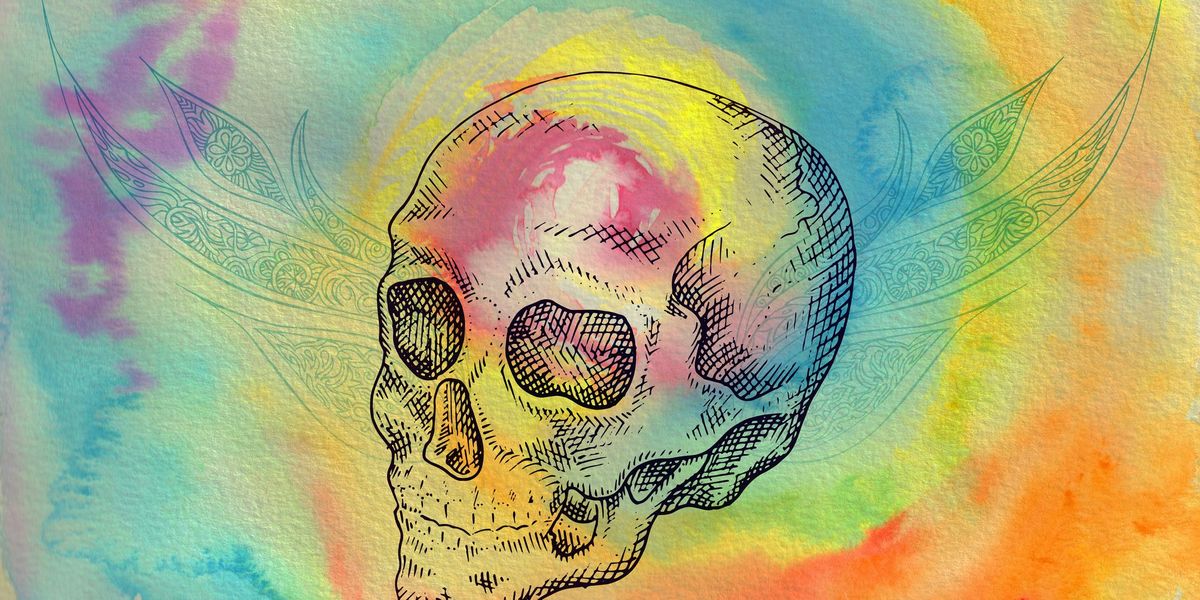We support our Publishers and Content Creators. You can view this story on their website by CLICKING HERE.

You may not be interested in the Amazon plant drug that lures spiritualism-hungry technologists into the care of indigenous shamans … but ayahuasca culture is interested in the tech industry, and that, like it or not, impacts us all.
On X, it’s a trending problem: While a fair share of veteran trippers insist it’s not a life-ruiner, the horror stories keep mounting, and not just about the notoriously protracted and painful experience of consuming and processing the drug itself.
CEOs are no longer satisfied with being CEOs — they want to be priests and official spiritual authorities on who and what to worship and how.
Not infrequently, the use of the drug leads to the same kinds of phenomena associated generations ago with LSD culture: burning out, zoning out, dropping out — all of which tend to put a severe damper on, say, one’s ambitions as a startup founder or Big Tech striver bent on world domination.
It’s enough of a thing to put the tech press and the tech industry into agreement. These days, that’s as rare as an uneventful “aya” experience. “VC the other day told me, ‘We’ve lost several really good founders to ayahuasca. They came back and just didn’t care about much any more,’” Bloomberg writer Ashlee Vance recently
recounted, prompting garrulous VC Marc Andreessen to repost with a ‘nuff-said “This is true.”
Many stories can be told here about why this is going on — not least among them the hoary narrative about the shared postwar roots of mid-century techno-utopia and drug utopia, forged in the conspiracy-theory-laden fires of Nazi science, CIA drug labs, and the eerie Californian nexus between the nascent deep state and the hippie scene. For just a sip from this almost bottomless well,
read up on Michael Hollingshead, the “sinister Austin Powers” who spread acid, acid culture, and the political earthquake it ushered in across the Anglosphere and beyond.
But there’s a deeper story still than the will to post-humanity behind the West’s attempts to fuse technology and fantasy into a transformative singularity. There really is something unique about digital tech, and not exactly in the way its own progenitors believed. For all the intensity of the Leary generation’s belief that the inner individual trip of psychedelics could be recreated as an outer, collective trip by computers, the subtler and more fascinating development has been the way advanced technology has thrown people back onto more formal ancient religions.
The tremendous political, economic, social, and spiritual destabilization of the TV era was the soup in which the creators of our digital world were born and raised. But digital has a logic of its own, independent of the passions and fantasies of its makers — and that logic is to sow tremendous boredom and doubt in digital natives toward anything that feels contemporary or manufactured. That’s why illusion and propaganda have had to turn the knob to 11 in order to move the needle even a modest amount.
Yes, the dwarfing of the human-caused by the dominance of the digital has thrown ever more people seeking a justification for their humanity back onto the deepest resources they can find at their point of origin — characteristically, the founding religion of their civilization. What this vast trend has caused in the tech industry is a loss of interest in business by many of the most successful businessmen. CEOs are no longer satisfied with being CEOs — they want to be priests and official spiritual authorities on who and what to worship and how.
And in America, which has incubated so many cult leaders for so long that we even started
spawning those of other civilizations, business has been a spiritual enterprise, and spirituality a business, for a long time already. So nothing is easier than slipping yourself into the CEO-to-priest pipeline, whether by recourse to that “plant medicine guide” or to one of Silicon Valley’s many “vibrant” gnostic sects.
Alas, none of those options have the staying power of, say, the average televangelist. Spiritual burnout awaits even those who redescribe professional burnout in the tuned-in shamanista terms of connectedness and release. Awaiting such suffering refugees are the priests of the ancient Christian churches in America, many of whom have been quietly cultivating and passing down the holy tradition of working toward union with God the old-fashioned way: through the ascetic, athletic spiritual practice of putting the mind in service of the purification of the heart, no drugs or bots required … in fact, quite the contrary.
Who better to trust for spiritually authoritative guidance about how and whether to use humanity’s most powerful tools?

 Conservative
Conservative  Search
Search Trending
Trending Current News
Current News 







